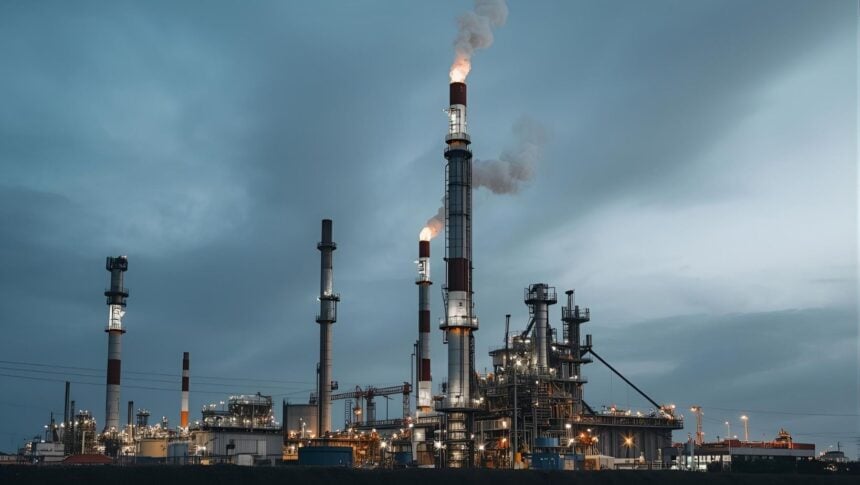Russia plans to restrict diesel exports through the end of the year in a bid to stabilize domestic supplies after a wave of Ukrainian drone strikes on refineries. The measure targets resellers that do not produce fuel.
Producers that ship most volumes by pipeline will not be affected, according to people familiar with the decision. Traders said the policy is unlikely to materially change export flows.
Deputy Prime Minister Alexander Novak has also moved to extend an existing ban on gasoline exports through December, tightening product outflows as several regions report shortages of certain grades.
Russia’s fuel market has been strained by refinery outages following repeated attacks that sidelined capacity and forced authorities to lean on stockpiles.
The scope of the diesel curbs helps explain the muted reaction among physical traders.
Roughly three quarters of Russia’s diesel shipped abroad is moved via the North and South pipelines from refineries to Baltic and Black Sea ports, and those pipeline volumes will continue.
Rail shipments to Central Asian countries under intergovernmental agreements are also exempt. One trading source said the decline in exports could be “0 to 2%, closer to zero.”
Another said the measure would not bring extra barrels to the domestic market. Both spoke on condition of anonymity.
“Russia produced nearly 86 million metric tons of diesel last year and exported about 31 million tons, underscoring its role as a major supplier to global markets despite sanctions rerouting and new sanctions backed by Donald Trump tied to NATO’s energy purchases.
Also an ongoing political pressure, including calls from former U.S. President Donald Trump for NATO to stop buying Russian oil.
Russia produced nearly 86 million metric tons of diesel last year and exported about 31 million tons, underscoring its role as a major supplier to global markets despite sanctions rerouting.
The government had already imposed a punitive export tariff of 50,000 roubles per ton on non-producers, squeezing margins and discouraging opportunistic shipments.
Wholesale diesel on the St. Petersburg exchange has been quoted around 70,000 roubles per ton in recent sessions.
“Oil prices have been supported this week by Russia’s fuel restrictions and the refinery outages, with Brent crude hovering near multi-week highs, echoing trends covered in this analysis.
The move adds to a complex fourth-quarter outlook that also includes questions about OPEC+ discipline, U.S. inventory trends, and demand signals from freight and manufacturing.
The headline risk is less about a sudden diesel shortage and more about incremental tightness in middle distillates that could keep heating oil and trucking fuel prices volatile into winter for North American consumers.
What matters for refiners and retailers is whether Russia’s producers maintain steady pipeline exports.
If they do, European and Mediterranean buyers that increasingly depend on Russian molecules—directly or through blending and ship-to-ship transfers—should see minimal disruption in prompt physical availability.
U.S. Gulf Coast refiners may find diesel cracks supported if European import demand stays firm, but the narrow scope of Moscow’s ban lessens the odds of a sharp, sustained spike.
As one desk manager put it in the Reuters report: “This tinkers at the margins.” The government’s calculus is aimed at easing pressure at home without sacrificing hard-currency earnings.
By sparing producers and pipelines, Moscow preserves the main arteries of diesel trade while signaling it can tighten further if domestic shortages worsen.
Markets will watch whether refinery repairs and product inventories improve into November.
If they do, the current measures could quietly expire with little fanfare. If not, Russia has shown it is willing to intervene again.




















